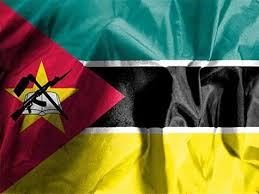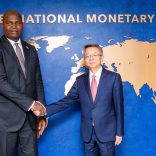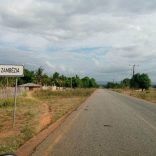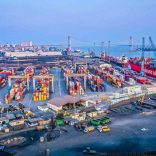IMF mission to visit Mozambique in November
Mozambique government hid debts from Renamo so as not to compromise state security

Prime Minister Carlos Agostinho do Rosario yesterday expressed regret that the government had not told the IMF about debts kept off the public accounts and said they were hidden from Renamo because they concerned affairs of sovereignty and state security.
“We have an opposition in parliament that attends parliament during the day and at night attacks elsewhere,” in a clear reference to the Mozambican National Resistance (Renamo), and the ongoing conflict in the central region of the country between the Defence and Security Forces and the armed wing of the largest opposition party.
The prime minister lamented that the government had not disclosed these loans to the people and to parliament, but he also mentioned that the situation the country was facing was “atypical and unique in the world,” again in a reference to Renamo.
“We could have done better,” Prime minister Agostinho do Rosário admitted, “but to reveal issues of sovereignty and state security in atypical conditions like this is very difficult.”
The prime minister also pointed to the transition in governments in early 2015 as another reason behind the concealment of government-guaranteed loans. The transition, he said, had led to the current executive “gaining knowledge of portfolios little by little”, and that information had taken time to be consolidated and shared.
“It went wrong. We could have done things differently without compromising state security,” said do Rosario, adding that in meetings between the Mozambican government and the IMF last week in Washington, the country had sought advice on sharing financial and military data in a timely and transparent manner while maintaining the state sovereignty.
“We will work together to improve the system of transparency and public debt management so that the situation never arises again,” he said.
The prime minister said that no audit was requested during his Washington visit, only the “sharing of debt information in order to assess the financial health of the country, and further accounting on the government’s intention to be transparent and provide information to the people and parliament”, and also “to listen”.
For the prime minister however, the most pressing issues that the country now faces are peace and weak productivity, in a context in which the Mozambican economy is being shaken by the devaluation of the metical, the rise in inflation and the brute fact that it imports four times more than it exports.
“The most important thing now is to ensure peace and Renamo’s disarmament. With peace and Renamo disarmed, we can produce. We must not be distracted by debt,” he said.
The Government yesterday confirmed a loan guaranteed by the state between 2013 and 2014, of US$622 million in favour of Proindicus and another loan of US$535 million in favour of Mozambique Asset Management (MAM) for coastal protection and gas reserves in northern Mozambique .
In addition to these borrowings, the Government has recognized the existence of a bilateral loan contracted between 2009 and 2014, of US$221.1 million dollars, “in the context of strengthening the capacity to ensure public order and security.”
In total, there are around US$1.4 billion dollars in borrowings that were not included in the public accounts, leading the IMF to suspend a mission that it had planned to Maputo and also the disbursement of the second tranche of a loan to Mozambique.
In the meantime, the Mozambican Prime Minister was in Washington to provide clarification to the IMF and World Bank on new debts, a move that was followed by technical meetings to a full clearance of the situation.
The case of the so-called hidden debts generated a wave of indignation in the parliamentary opposition and civil society, who demand public explanations of the executive and an investigation of possible criminal liability.












Leave a Reply
Be the First to Comment!
You must be logged in to post a comment.
You must be logged in to post a comment.